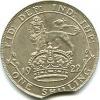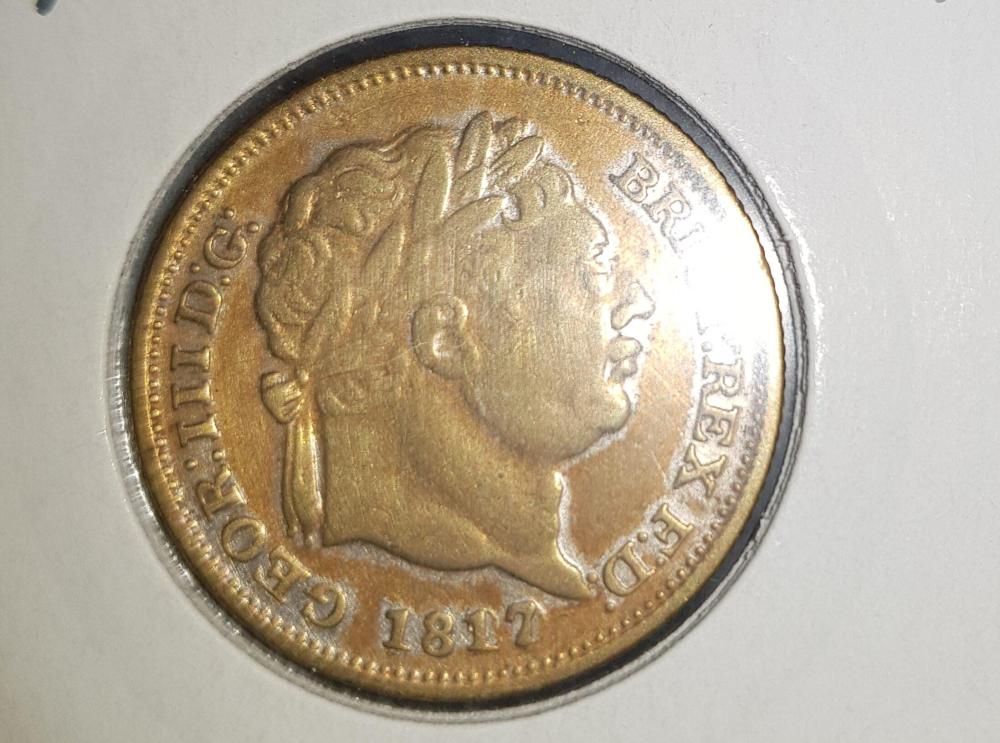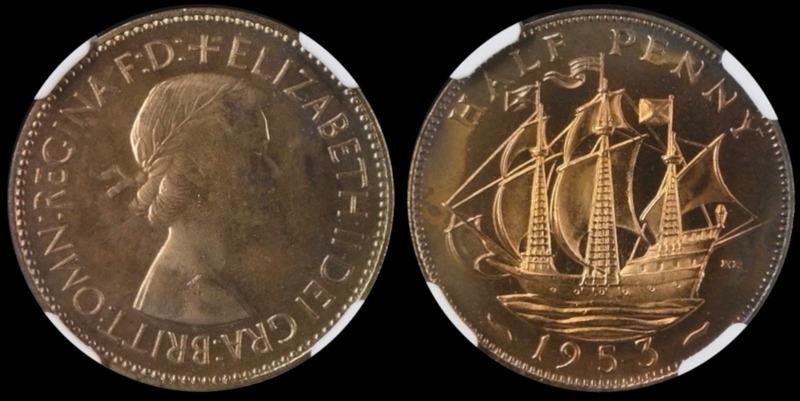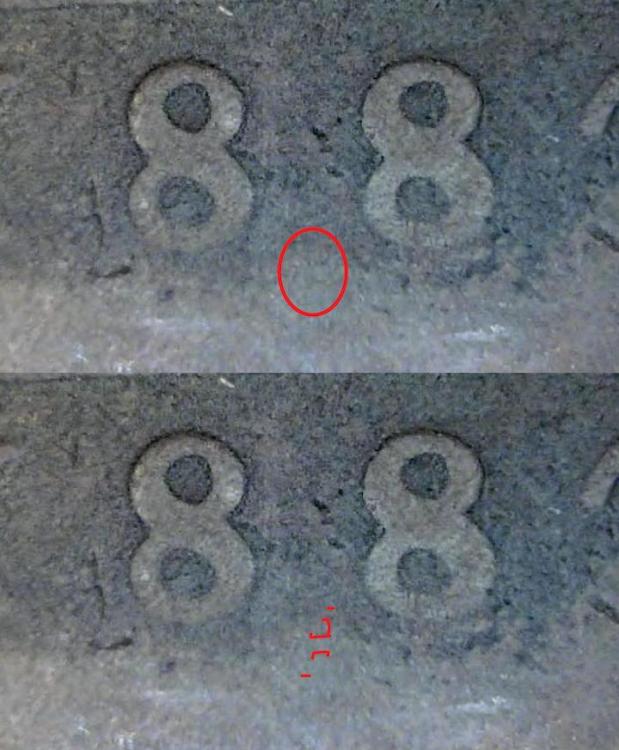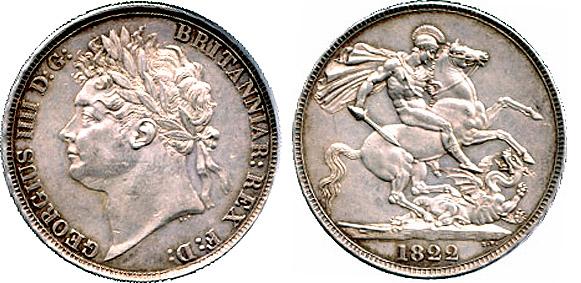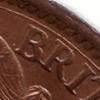Leaderboard
Popular Content
Showing content with the highest reputation since 01/06/2026 in all areas
-
Starting off, I owe you all a big Thank You...I came here 1 year ago and was recovering from a stroke... my reading and speaking has got better and my chaos has improved as well.... to a degree. Ive attached some photos of what's been paged and has put some order in place.... if the worse happen I'd hate to think what would have happen to these coins... The hammered coins (pennies) still cause problems for me and still there others to follow.... Sorry! 😟 once again a huge Thank You one and all for the support and clarification when assisting my queries, I wouldn't have been able to have got this far without it. Kind Regards "H"9 points
-
I have to at least make some cursory effort to inform myself as to why two members are not getting along. Get a bit of background, you know. Although I think I probably wish I hadn't. The BLM thing was years ago and this is a coin forum. Peckris' recent post about Jenrick was silly, but he's still not going on and on about the same thing for years. I'm going to close this topic for now. I may open it again at some point. Please don't start another one or carry on somewhere else where you left off. I think we know where you're coming from by now and you and Peckris are never going to be buddies. That's it, back to coins.7 points
-
7 points
-
7 points
-
My idea a few years ago was to do away with the 1p and 2p because they are comparatively expensive to make and fiddly to deal with, and have the 5p as the smallest denomination in regular use, as is already the case in some countries (I think NZ and Australia have 5c as their smallest in-use coin). But with a just-for-fun and British quirky twist - have it renamed as a 'Shilling' (dually featuring both '5' and 'Shilling' in the design). Items could then be priced in Pounds and Shillings if so desired, but it would still be decimal and technically nothing would change, there would still be 100 pennies in a pound and the 5p would still be 1/20th of a pound just like it and the shilling always were. Merchants could price exactly the same as now, e.g. £3.40 or they could be brave and price as £3/8 for the novelty value. Most would no doubt stick to the way it is now, but it would be fun to have pounds and shillings, and perhaps shillings could catch on at least colloquially. The 10p could be called a florin and the 20p a double florin. The 50p would be 10 shillings, obviously. I think it would be fun thing, but it's no doubt too late to re-establish any kind of shilling now, even in name only, for 2 reasons - 1. People who fondly remember using actual shillings are becoming scarcer so there really isn't much nostalgic connection with shillings, florins etc among the general public as a whole and the concept of having £1 made up of 20 of something would be confusing for many. And.. 2. Physical cash in everyday use for payment of most things is being overtaken by electronic alternatives, so use of actual cash is dwindling and is very likely to continue on a downward trend. Pie in the sky. Maybe it could have worked 20 or 30 years ago!6 points
-
6 points
-
These are the best of my bunch, 1864 is probably the best example that I have, these as the rest I have were boot fair finds well over 30 years ago, pre computers internet day and age...... also It turns out 12 months have passed by it was 1 year today that I first joined www.predecimal.com/forum 👍🍻6 points
-
6 points
-
5 points
-
5 points
-
4 points
-
You'd need a deep pocket for most of these recent items at Heritage, but not all early copper has sky-rocketed over the last few years - the slab-grades have the main effect of course. There are two Peck plate coins, but none of the coins including theses were provenanced by Heritage. Perhaps the buyers recognised them too, but probably just going on the grades. All are hammer prices: 1694 1/2d - MS61 - $1200. Surprisingly low grade for a coin that retains lustre, this is the Nicholson example that sold for £1,200 (I think) in 2004, if so it's made no money at all over the last 20+ years! This is the exception price-wise. 1694 1/4d - MS64RB - $7,000. Lovely colour though slightly porous detail, this is Colin Cooke's own example sold 2005. 1695 1/2d - MS63 - $9,000 - big rise on this one, though it has been glossed and lost some lustre since previously sold at Baldwin's 2010 Strickland-Neville Rolfe auction. I saw it at the time and wondered if it was thick-flan (there's only one known otherwise) as it did look unusually thick. It was a bit porous though so that can be deceptive. Unfortunately it was sealed in plastic and I couldn't ask Baldwins to weigh it, because if it was heavy weight, they'd have amended the description and it wouldn't have been a bargain! It wasn't very cleanly struck though and It went for £540 back then. 1699 1/4d date in legend - MS64 - $7,000. This is Brook's example and is the Peck Plate coin despite the dark photograph where you had to squint to make out much. The edge variation matched up and it is of course the no-stop between A and the date variety - which was also not mentioned by Heritage. As far as I know, this was last sold in the Shuttleworth collection SNC 2001 as EF £650. 1701 1/2d - MS63 - $7,250. Also the Peck plate coin and Heritage auctions missed (or the slabbers couldn't be bothered to note) it was no stops obverse (P.704). This is ex Nicholson Hopetown House, Peck.4 points
-
4 points
-
4 points
-
FFS, alright STOP. How do you have the energy to hold a grudge for 5+ years and still get so worked up now? I can't even be bothered to read all of the 'Proof there is no god' thread, because even with my 'neutral' cap on, trying to be objective, you really do seem to moan on and on and on. And now you're doing it in this topic, years later! Be cool man, at least for your blood pressure and arteries, it's just not worth it. People don't want to see it. I don't want to see it. Tit for tat nonsense. I don't think I've ever paused/suspended or had to take any disciplinary action on anyone in the forum in 20+ years (some that did have bees in their bonnet tended to leave in a huff of their own accord). Please, either take this elsewhere.... difficult I know, if Peckris has blocked you or whatever. Or find some other place to argue with people. Life's way too short.4 points
-
"The Harold II silver penny hoard only includes pennies minted by the king" You would have thought a king would have better things to do4 points
-
Welcome to the forum @sambevan77 An interesting selection, but as you say nothing I think of startling value. It would take a long time and a lot of effort to fully ID all of those. A few shots: Row 1 - first is Roman, second looks to be "Hollandia" - ie Netherlands 18thc, third might be an Indian temple token, fourth and fifth I think are Ancient Sri Lankan, sixth looks byzantine, seventh no idea. Row 2 - first may be another byzantine, 2nd, 3rd, 4th look to be Indian , 5th maybe French, 6th, 7th and 8th Roman. Row 3 - 1st, 3rd and 4th look South American, 2nd might be the most valuable as it maybe an Indian gold Fanam, 5th and 9th no idea, 6th, 7th and 8th Indian or Middle Eastern. I hope that helps. You will have to do much more research in your own time, but hopefully those thoughts will get you into the right areas.4 points
-
4 points
-
I think people get a bit worked up over the question of cleaning as the topic is somewhat nuanced. Every coin in circulation showing signs of wear has effectively been cleaned because the act of circulation ensures that contact is made with other surfaces which rub against each other. i.e. nothing different to taking a the use of chemical cloth to a coin and rubbing. That just speeds up the process. The only thing that is offensive in the eyes of most collectors is a case of a polished coin, with or without the use of chemical substances. Personally I love toning for the fact it gives added confidence that the surfaces have not been messed about with, but even that has a few caveats because silver dip will leave a residue on the coin which over time will give the piece in question a typically pinkish hue. Any coin in someone's pocket will end up from friction with lots of faint parallel lines, because they were there. Without polishing chemically, I defy anyone to see the difference between pocket rub and a soft cloth, though clearly it would be possible in the case of demonetised coins to use your loaf and conclude that not being in circulation any more, the only option left is deliberate. In the case of the Morgan above, if the surfaces aren't reflective, probably not other than 'cleaning' from circulation, because there is clearly wear to the high points.4 points
-
3 points
-
You were 100% correct Stu and thanks unwillingly numismatist for putting me on to Liz who verified it was a fantasy piece unfortunately 😕 Thanks guys this is much appreciated because it's irked me for some time. Glad it was in a joblot of coins auction and as it hardly cost anything.3 points
-
1882 were nearly all minted by Heatons and therefore carry the H - a few were minted in London (just to test the new electronic presses?) and are very rare. I'm baffled by the George III coins though - pennies weren't minted until 1797, "cartwheel" type. There's no 1773 or 1775 pennies, but there were halfpennies which are noticeably smaller than bun pennies unlike your 1773. The 1775 looks very wrong and is probably an 'evasion' type, i.e. a contemporary forgery produced in the US. The 1773 "penny" looks more like a genuine halfpenny should apart from the size , but is also probably wrong - REX is wider spaced than on a genuine example.3 points
-
His constituency is Newark apparently. I wonder if Kemi Badenoch has reflected on possible anagrams that could be made...?3 points
-
The one consideration you have missed is the possibility that the overdate (or letter) was not punched deep enough into the die to pass the lowest point of the previous digit. Using the same reasoning, consider the 1817 GEOE/R shilling. I refuse to believe the engraver thought 'Here'a correct legend, I'll just create an error by 'correcting' the R with an E so that some nerds 200 years from now find something to get excited about'. Clearly the E would have been put in first, but the correction wasn't sunk deep enough. Easy to do if you are looking at the lowest point in the field as a reference point rather than the bottom of a very small deep pit.3 points
-
3 points
-
Someone has took a genuine 1820 coin and altered it to 1817 then cast it i assume. Anyway....I found the paper's that Gary Oddie wrote if anyone is interested. They are all on the link here...https://britnumsoc.blog/2021/10/09/counterfeit-shillings-of-george-iii-1816-1820-iv-a-contemporary-mould-revisited-gary-oddie/3 points
-
Sad news about Gary. I never met him but heard lots of good things about him. He was born in the town i reside in. I just dug my shilling out as this post had sparked my interest. Never even noticed it before but it's got a clear overdate. 1817 over 1820. That's something i have never seen in a counterfeit coin before.3 points
-
To be fair, the chaos doesn't ever seem to subside. Sometimes you need to part ways with it for a while to regain the will to try and overcome it.3 points
-
2 points
-
Aha..and as I have read.....it came about due to King Charles I was executed for high treason in 1649, after a civil war pitting his supporters against Parliament for control of the country...... 🤔2 points
-
No problem. I do have a scanner. Hp Evny 4525. Think it's up to the job. I will dig it out and dust it off and scan it for you tommorow. Thank you for taking the time to look at it. Stu.2 points
-
Yes, definitely a contemporary forgery (very common) of a silver skin clad onto a base metal core - the core is corroding and bursting through in places which is causing those greyer-looking patches and random protrusions through the silver skin. So, no scrap value at all to speak of, but an interesting bit of social history and probably worth keeping thus.2 points
-
2 points
-
Great. Message me and we'll sort out the technicalities.2 points
-
That's sad. I lost my mum to a brain tumour in 2021. By the time she was diagnosed it was stage 4. Three months she lived from diagnosis to passing away. Affected us all deeply. Thank you for replying. I look forward to seeing your future research when you are publishing your findings. Stu.2 points
-
Poor Gary, but absolutely fantastic that you’re still around and working with the counterfeit coinage. Nice to hear from you.2 points
-
Hi Guys! I'm still around but haven't had much time for coin study lately. Gary was about to start a new cancer treatment which unfortunately proved to be in vain. As he knew he might not be recovering, he offered me to buy his collection of counterfeit George IIIs shillings at a very fair price. So I jumped on a plane and spend a pleasant evening with him where we wrapped the coins in rolls with paper and looked at some of his vast collection. Next morning the very day he would start the new treatment, I returned to Denmark - and never heard from him again. I haven't yet had a chance to look at the coins, of which there are apparently over a thousand. Instead, I've been working with my own collection in the hope of being able to refine the group divisions and perhaps arrive at a more correct classification for the whole series. Only when that's finished, I will start classifying Gary's coins.2 points
-
I believe their local council is to rename Wells-next-the-Sea as Wells-in-the-Sea?2 points
-
2 points
-
Deary me, we seem to have a difference of political opinions. Which is fine of course. But please don't insult Peckris by suggesting he is not familiar with the word "honestly". Don't need negative vibes today, or ever for that matter. I don't have any spare brain cells to have to worry about potential conflicts on the forum.2 points
-
I found this interesting and some lovely hammered coins pictured: https://www.bbc.co.uk/news/articles/cm2yerrqel7o2 points
-
2 points
-
Quite a few Counter-stamps are commercial. Many copper pennies were stamped with "Lloyds" and used as tokens for their paper. The Chinese used Chop marks to confirm authenticity or claim ownership. Some were also governmental - indicating a re-valuation or the use in subsidiary or revolutionary organisations. Many early Caribbean coins are counter stamped versions of other country's money. Engraving tends to be more personal, individual and so difficult to track down. When I first started collecting again in the early 2000s I picked up a cartwheel penny at an antiques shop, which, in the terms of the vendor, had been "Vandalised as someone's written all over the back" As a result it was cheap. The wording was something like "When this you see, think of me, J Bond 1827" - it was a transportation token created by or for someone about to be shipped to the colonies! I put it on Ebay, and it sold for a tidy sum, going to Australia. Sadly I no longer have a picture. Here is a Brazilian 20 Reis counter stamped by the government to revalue as 40 Reis.2 points
-
2 points
-
Yes, Gary Oddie passed away quite recently. @seuk is Peter Poulsen. Most of his website text has been archived, but unfortunately none of the images: web.archive.org/web/20150825194438/http://www.steppeulvene.com/index.george_iii.html I hope he's alright.2 points
-
2 points
-
2 points
-
Many thanks for the suggestion – I could list a dozen Brexity coin matters, but you immediately came up with one that I never thought of! Three points come to my own mind concerning the BM “Money Gallery”. 1) There is a useful account about how it came into existence here – straight from the horse’s mouth https://icomon.mini.icom.museum/wp-content/uploads/sites/20/2019/11/The_HSBC_Money_Gallery_at_the_British_Museum__Access_to_excellence.pdf “In 1995 HSBC Holdings PLC, the international financial group, with a deliberate focus on the increasingly globalised nature of monetary transactions, agreed to provide a donation worth £2,000,000 for the project” I am not sure when you visited – but the “deliberate focus on the increasingly globalised nature of monetary transactions” definitely lay behind that 1997 plan - to make sure every country got representation - and this seems surely linked to the advertising strategies of HSBC some years back (Just search Youtube for “HSBC” and “culture”). So my feeling is not that Soho matters were deliberately dropped. More like - it just did not fit the HSBC core narrative and was forgotten. I will add, knowing the sort of money that international brands pump into football, at 2 million, the BM rather sold itself short. Or maybe, scholarly interest is just a niche matter these days? 2) From my own side, it was the reorganisation of the gallery under Citi funding around 2012 that troubled. You point out the change of name, from “Coins and Medals” to “Money”. Under Citi only one long wall was left devoted to “Coins”. The other entire wall was now devoted to “Money”. Predictably the “Money” wall culminated in……... credit cards. Citibank made many billions from Credit cards, and was part of the associated anti-cash/coin advertising push back in the day. It seems curiously difficult to find the Citi BM donation on line – but I seem to recall it was 4 million. Personally that seems to me a cheap price for what rather looks like a shot at re-writing history. 3) More fundamentally, my fear is that these international money men are coming to the institution with the mind set of an advertising agent. Grabbing the attention of the general public is the core aim, scholarly accuracy sometimes lagging a long long way behind. Very specifically I can point to a Youtube video of the current curator, appointed post Citi, holding a silver pound coin of Charles I and saying the words: “it is a pound weight in silver” Oh dear. Rob Tye2 points
-
I have now added this type to my rarest pennies site and would be grateful to see any other examples.2 points
-
I remember a documentary in the 1960s showing the young royals preparing for Christmas decorating a tree. Anne was up a ladder and Andrew was trying to climb up with her. She turned on him and ordered "Geroutovit!" loudly. She obviously spotted a wrong'un early on!2 points

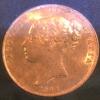
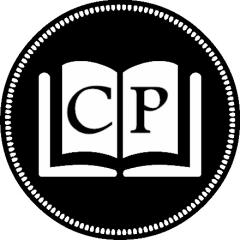

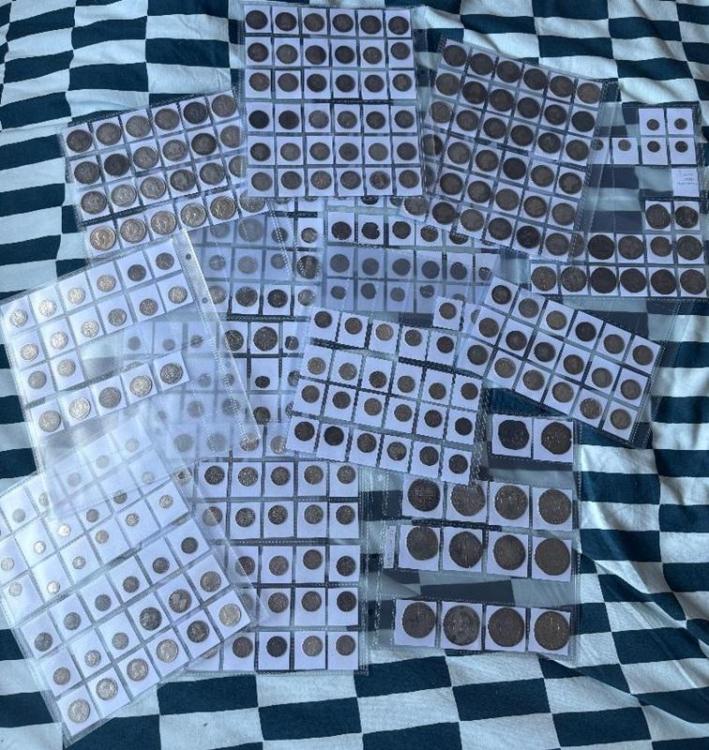
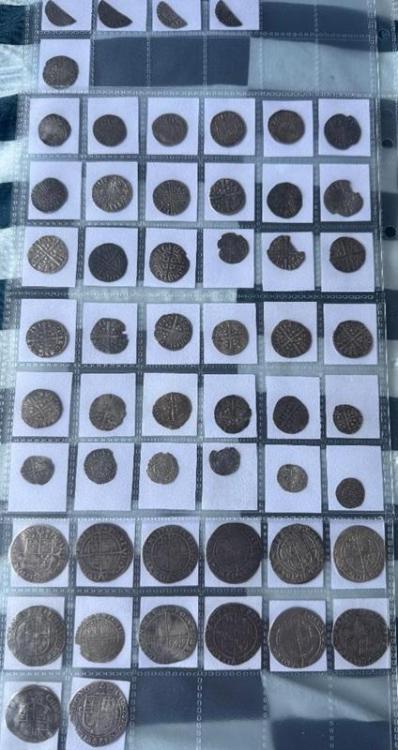

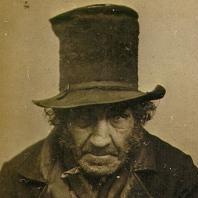
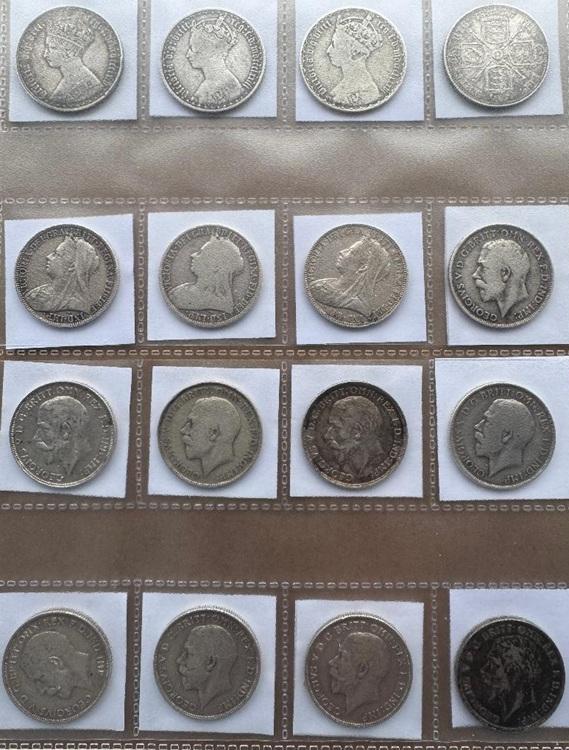
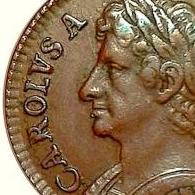
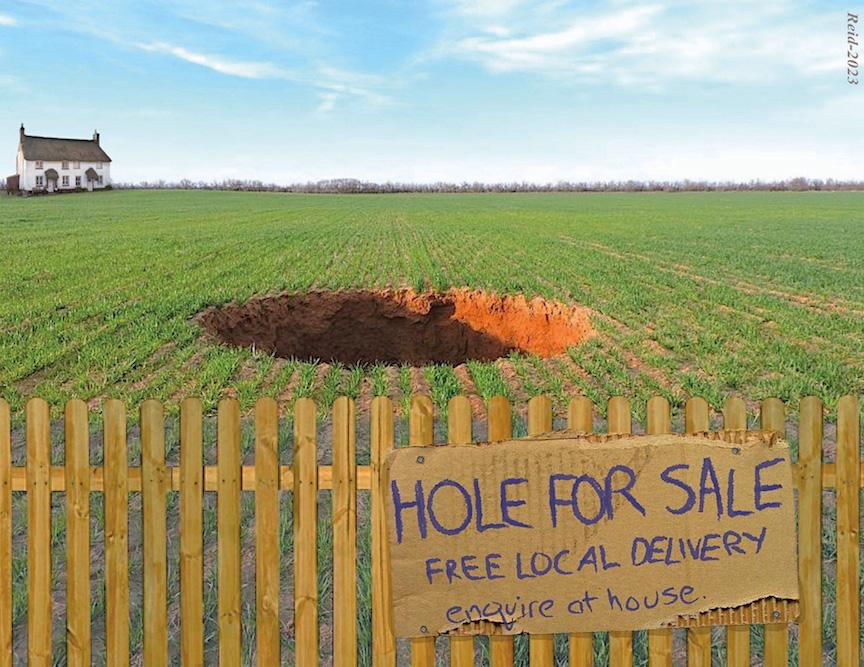
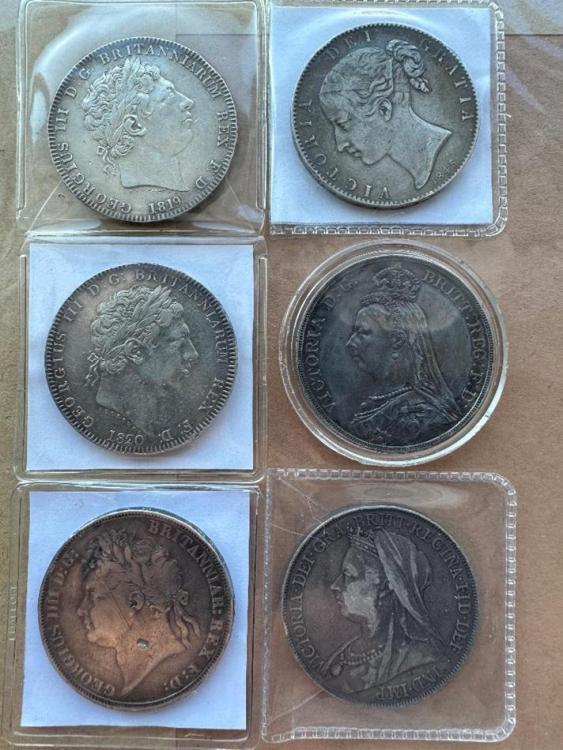
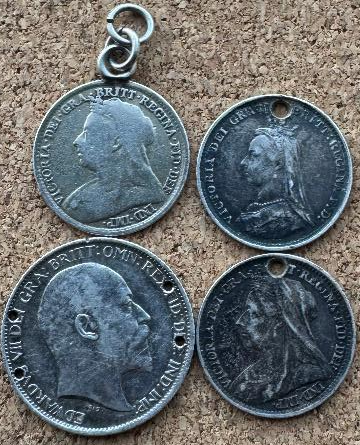
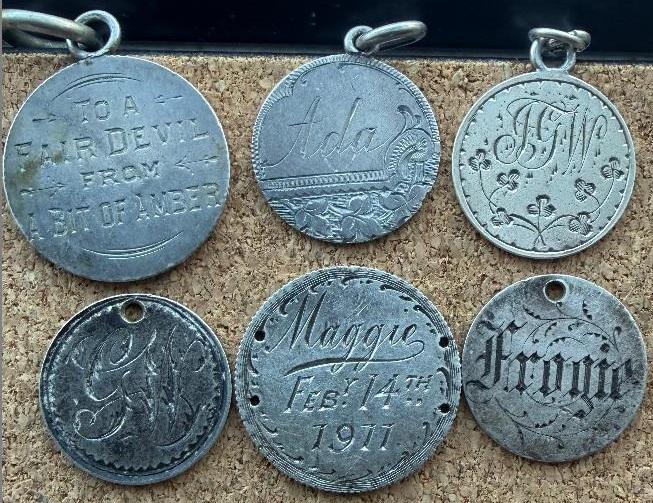
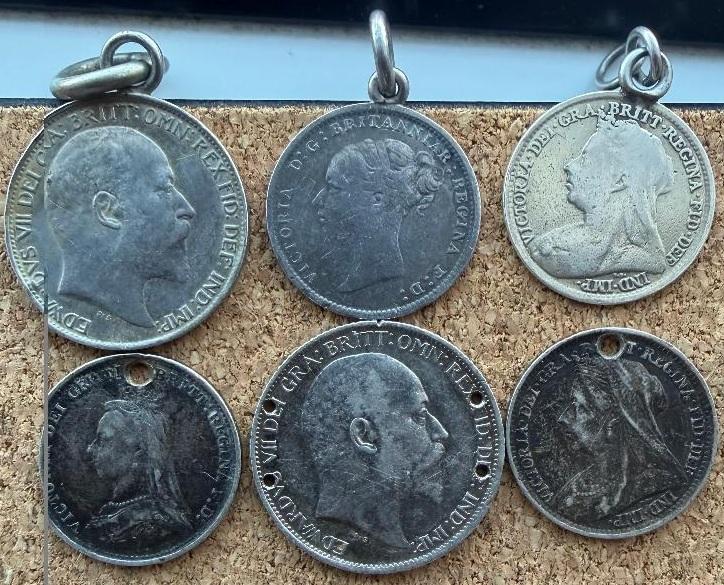
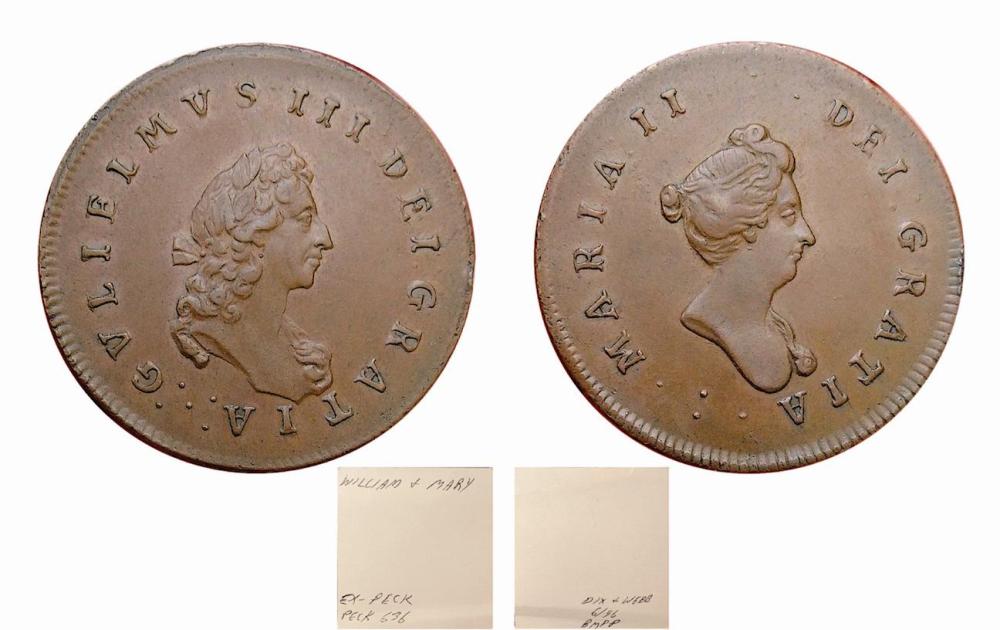
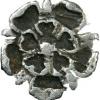
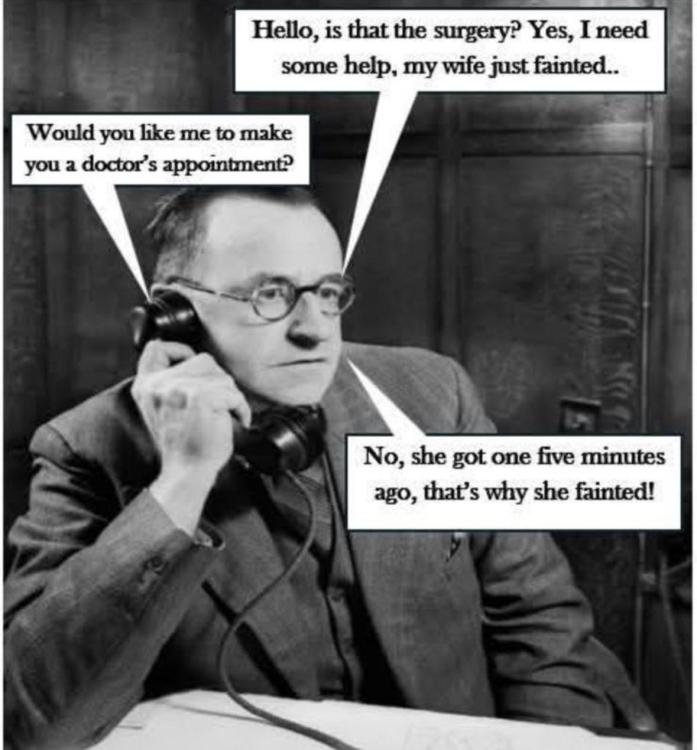


-Copy.jpg.2c588ce105ce4add953990bc7684bba5.jpg)
-Copy.jpg.99ed70fff3cb1123b6b0487666b46107.jpg)
